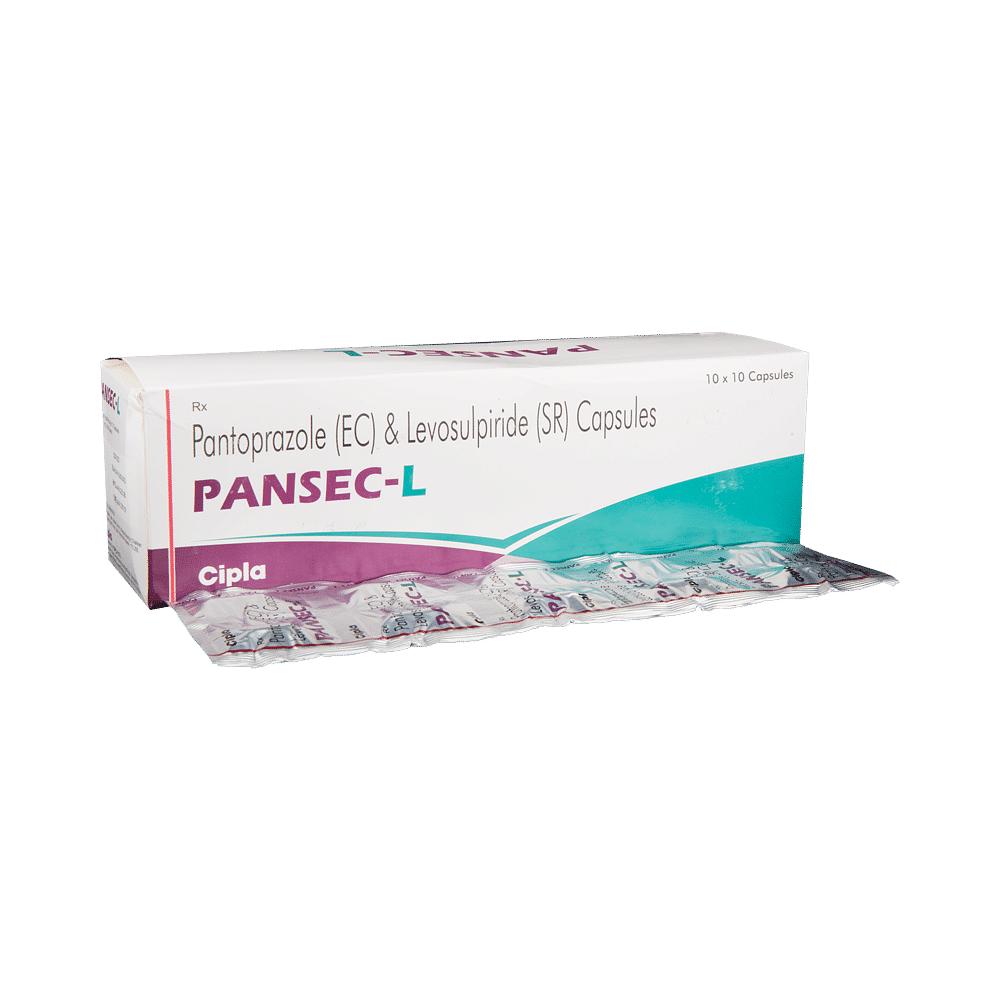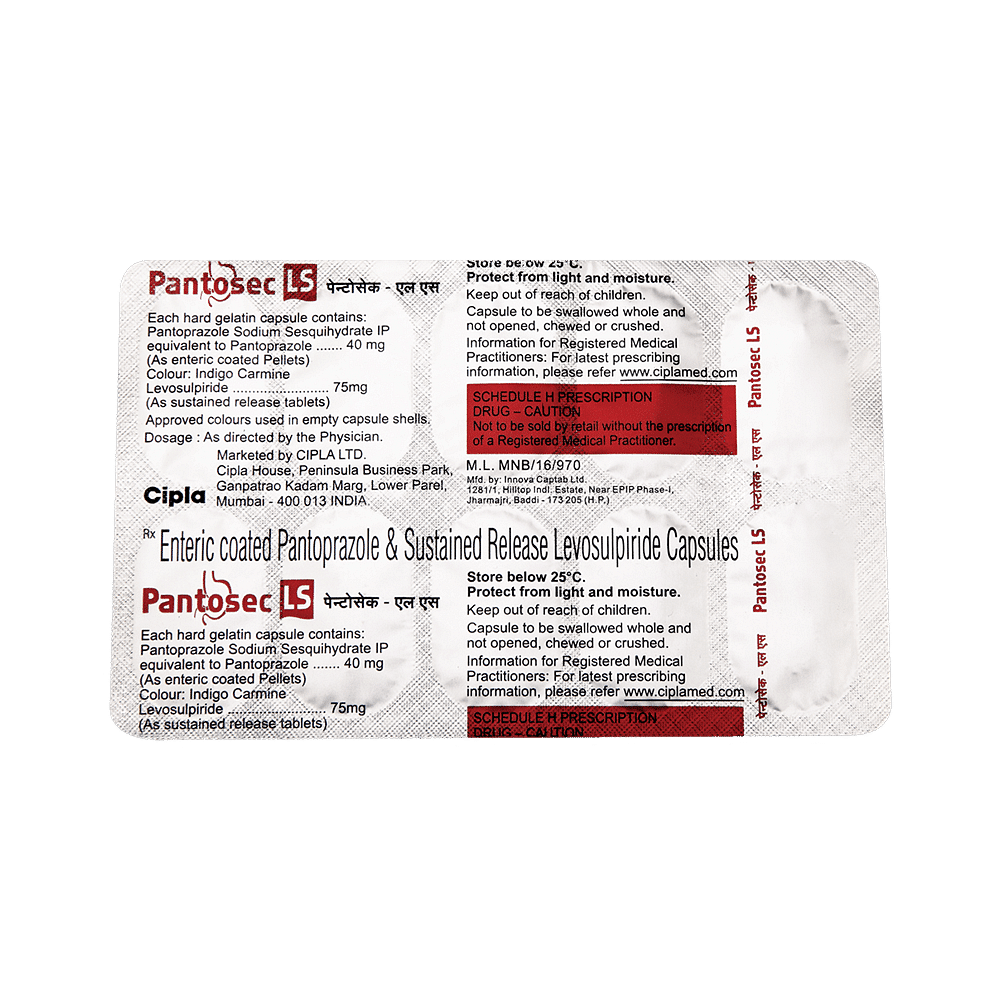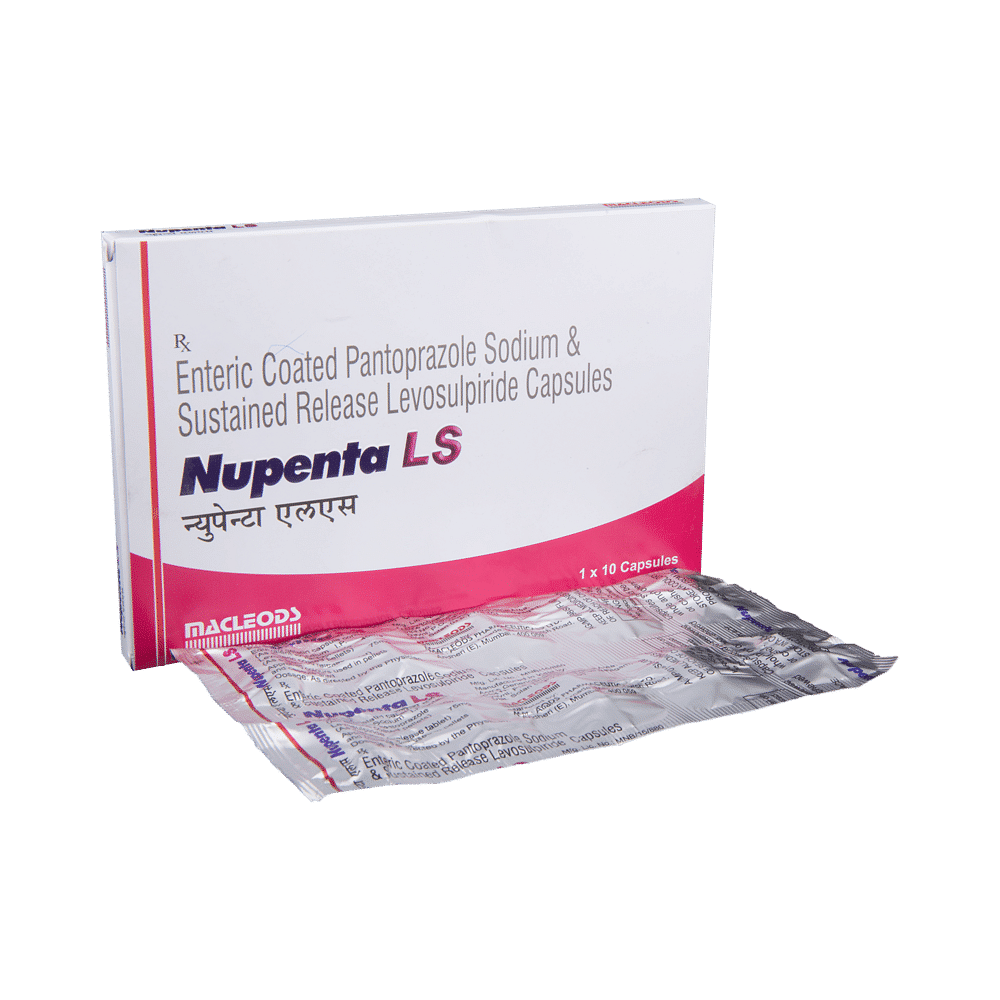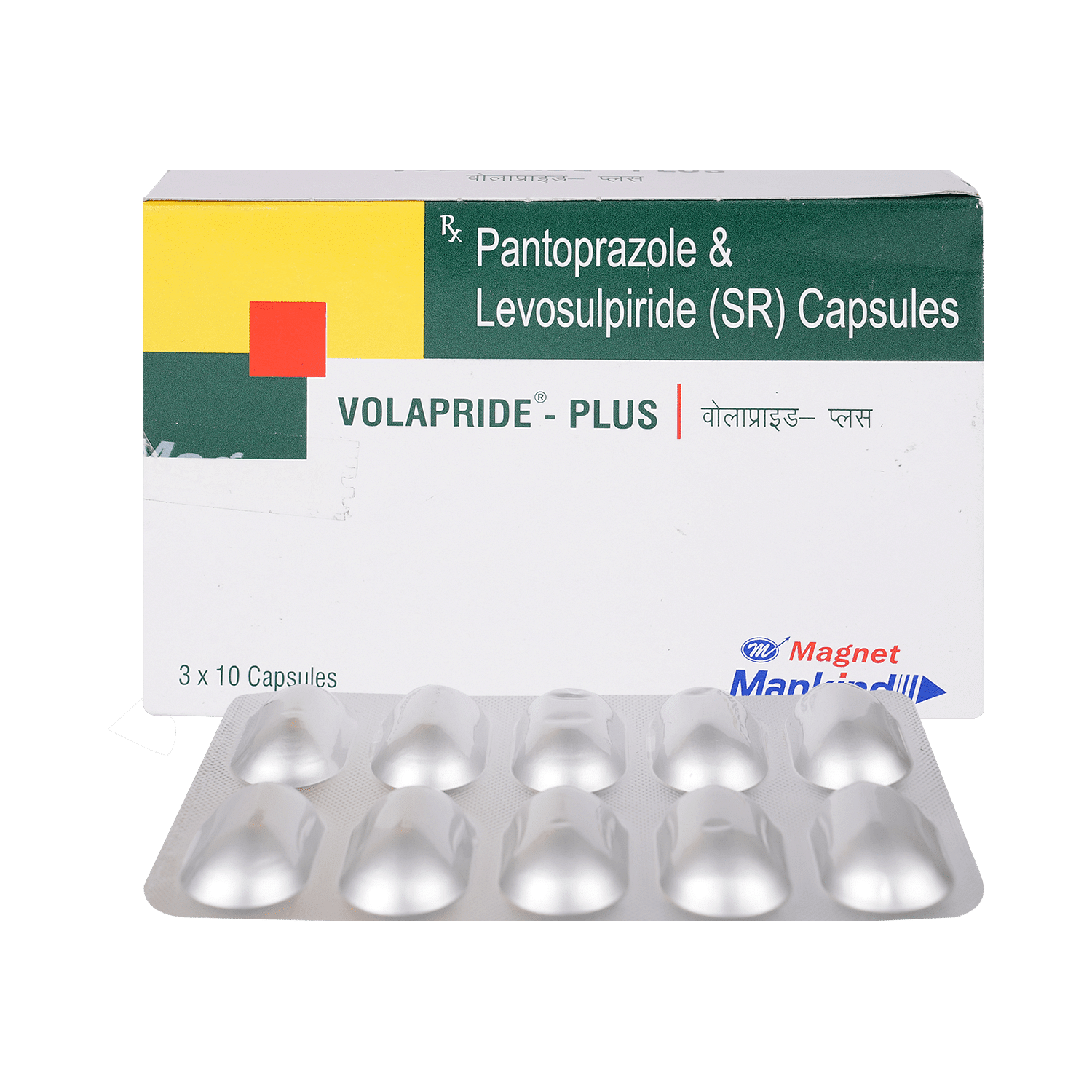
Anvitop-LSR Capsule
Manufacturer
Anvicure Drugs
Salt Composition
Levosulpiride (75mg) + Pantoprazole (40mg)
Key Information
Short Description
Anvitop-LSR Capsule is a medicine used to treat gastroesophageal reflux disease (acid reflux) by relieving the symptoms of acidity such as heartburn, stomach pain, or irritation.
Dosage Form
Capsule SR
Introduction
Anvitop-LSR Capsule is a medicine used to treat gastroesophageal reflux disease (acid reflux) by relieving the symptoms of acidity such as heartburn, stomach pain, or irritation. It also neutralizes the acid and promotes easy passage of gas to reduce stomach discomfort.
Directions for Use
Take this medicine in the dose and duration as advised by your doctor. Swallow it as a whole. Do not chew, crush or break it. Anvitop-LSR Capsule is to be taken empty stomach.
How it works
Anvitop-LSR Capsule is a combination of two medicines: Levosulpiride and Pantoprazole.
Quick Tips
Anvitop-LSR Capsule is prescribed to give relief from acidity and its associated symptoms. Take it one hour before the meal, preferably in the morning. Inform your doctor if you get watery diarrhea or stomach pain that does not go away. Do not consume alcohol while taking Anvitop-LSR Capsule as it can increase the risk of stomach damage. Long-term use may cause weak or broken bones. Take adequate intake of dietary calcium and vitamin D or their supplements. Do not take Anvitop-LSR Capsule for longer than prescribed.
Related Medicines

Pansec-L Capsule

Pantop LS Capsule SR

Pentate LS 75mg/40mg Capsule SR

Pantosec LS Capsule

Nupenta LS Capsule SR

Volapride-Plus Capsule SR

Pantozol L 75mg/40mg Capsule SR

Wellgas L 75mg/40mg Capsule SR

Preamp-L Capsule SR

Prazl L 75mg/40mg Capsule SR
Frequently asked questions
When is the optimal time to take Anvitop-LSR Capsule?
Always follow your doctor's specific instructions regarding dosage timing. Generally, you should take one capsule on an empty stomach daily.
Are there any contraindications for using Anvitop-LSR Capsule?
Anvitop-LSR Capsule should not be used by individuals with known allergies to any of its components or excipients. Seek medical advice immediately if an allergic reaction occurs during or after use.
Can Anvitop-LSR Capsule cause dizziness?
Yes, some patients may experience dizziness (lightheadedness, feeling faint, weak, or unsteady) when taking Anvitop-LSR Capsule. If you notice these symptoms, it's important to rest for a few moments and resume your routine only when you feel better.
Does using Anvitop-LSR Capsule increase the risk of fractures?
Some studies in adults have shown that Anvitop-LSR Capsule may potentially increase the risk of osteoporosis-related fractures, especially of the hip, wrist, or spine. This risk is higher in patients who receive high doses, often multiple times per day, and for prolonged periods (over a year). It's crucial to discuss your individual situation with your healthcare provider.


